Its not a secret anymore that ITC Sonar makes a great Biryani. But this time when we got invited to taste their Metiaburj dinner, the catch was something else. They’ve invited Mr Shahenshah Mirza, the great great grandson of late Nawab Wajid Ali Shah, arguably the inventor of Kolkata styled biryani and the chefs from Metiaburj area to prepare their distinct cuisine ans we got a chance to have an adda session with him.
First things first, let’s go through a small gyan session on the history of biryani.
The origin of Biryani is uncertain. In North India, it is traditionally associated with the Mughlai cuisine of Delhi and the Awadhi cuisine of Lucknow; in South India, it is traditionally associated with the Hyderabadi cuisine. The word “biryani” is derived from Persian language. One theory is that it originates from “birinj”, the Persian word for rice. Another theory is that it derives from “biryan” or “beriyan” (to fry or roast).
There are two basic types of biryani: pakki (“cooked”, also pukka) and kacchi (“raw”, also kutchi). In pakki biryani, the cooked meat and cooked rice are layered. In the kacchi biryani, raw marinated meat is layered with raw rice before being cooked together.It is also known as kacchi yeqni. It is cooked typically with goat meat (usually ‘khasi gosht’, which is meat from castrated goats and often simply referred to as mutton) or with lamb, and rarely with chicken or beef. The dish is cooked layered with the meat and the yogurt based marinade at the bottom of the cooking pot and the layer of rice (usually basmati rice) placed over it. Potatoes are often added before adding the rice layer. The pot is usually sealed (typically with wheat dough) to allow cooking in its own steam and not opened till ready to serve. A boiled egg and mixed salad often accompanies the dish. It is featured in wedding feasts in Bangladesh, usually served with borhani, a spicy drink. Kolkata biryani comes under the first (pakki biryani) type, whereas the hyderabadi biryani comes under the second (Kacchi biryani) type.
And the curious case of using potato and egg in Kolkata biryani
There goes around a strange story that Nawab Wajid Ali shah, when shifted to Kolkata in 1856, had to survive in 1 Lakh rs per month stipend, given by the british rulers. The amount may not be small, but considering his big big family and numerous servants, the amount was not that much. Now, in his kitchen, there were 2 types of cooks. One were called Rakabdars (who cooked for only the royal family and its descendants) and khansamas (who used to cook for the general public). And it was getting increasingly difficult for them to cook for the entire group within that budget. And some intelligent Khansama tried substituting potato and egg along with meat in biryani. The nawab liked the taste so much that it became a standard recipe in the Kolkata styled biryani. But, the rakabdars never got used to it and used only meat in biryani. Mr Gulam Nabi (head chef of Royal India Hotel) is confident that his recipe is handed over to him from the rakabdar clan of Nawab Wajid Ali shah and hence potato is never ever used in Royal India Hotel. Frankly, I would love to get any feedback regarding the authenticity of this story, but frankly, how does it matter when the biryani is good and we love potato.
Anyway, let us come back to the point. ITC is having this festival in their coffee shop from 16-23rd April 2016 dinner and is priced at INR 2250+Tax with a glass of premium beverage per person or INR 1950+Tax with a glass of soft beverage per person.
It was a sneak-peek on the feast and we met Mr Shahenshah Mirza along with his wife, the famous food columnist, Mrs Fatima Mirza at dinner along Mr Atul Bhalla (GM, ITC Sonar) and other fellow bloggers. Mr Mirza, being an extremely well-traveled and soft-spoken person, felt somewhat startled with our numerous questions but still tried to address them all, and definitely that was a feel-good factor.
For starters, we were presented the chicken Reshmi Tikka (average tasted) with Paneer tikka. Next came the foirs the first surprise of the evening- Paneer Champ. Its was stuffed paneer cooked withdry champ gravy and this just set the mood of the dinner. Mughlai parota (without the egg filling) was served with dal (with a distinct mughlai flavor) and Gosht Tikka (unlike what we expected, it was more like galouti Kebab). Fish Tikka Butter Masala (a dry dish, great in taste and flavored by fenugreek) followed with dry chicken champ.
all good, but frankly, I was waiting for the biryani to arrived, and she came in two avatars. One was aloo and chana dal biryani and the other, the quintessential mutton biryani with aloo and egg. They served it a little gila cut (slightly moist) and the smell itself blew me off. If not anything else, I would suggest to visit this festival for this only. I had some Dahi Pudina Ghol also, but the biryani needed nothing else actually. BTW, I tasted the veg version also from one of my fellow bloggers, and surprisingly it was also good. But like a true blue bong, I fought the battle with the mutton version only.
For dessert, we were served Phirni, Laccha and Zarda Pulao, but frankly I was full with the biryani and tasted very less. Zarda Pulao was brilliant.
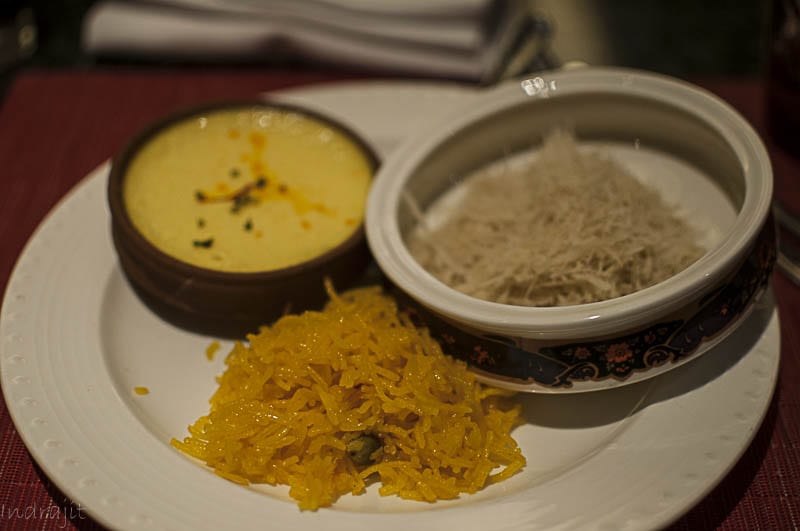
I could hardly move from the sofa and if anyone goes, I would suggest, skip everything and gorge on the Biryani- its pure heaven. And, if you have to try anything else, there is the paneer champ. For dessert, Zarda Pulao should not be missed also…… Hurry up, because the festival is getting over on 23rd and needless to say- on Apetite !!!
I can be reached at 9903528225 / indrajit.lahiri@ymail.com

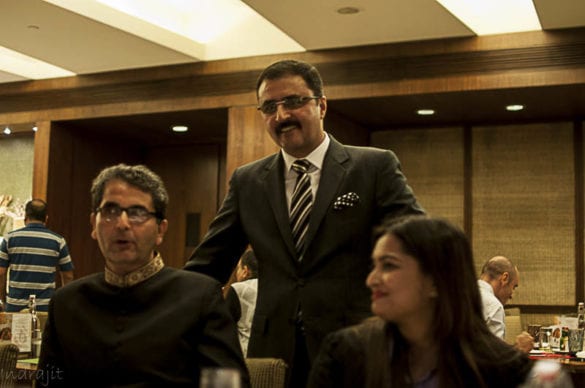

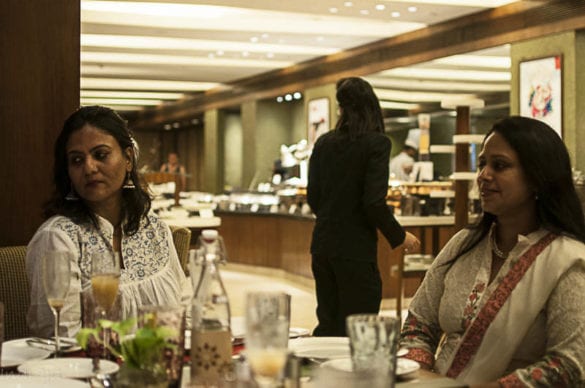
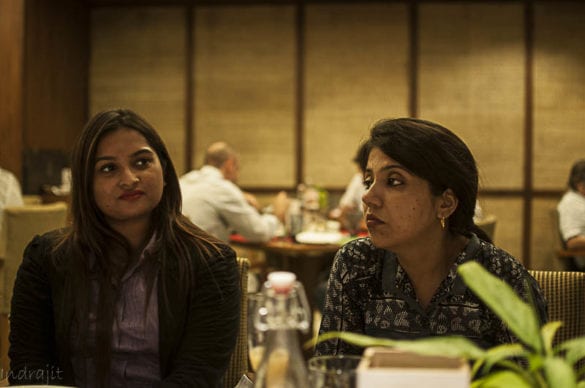
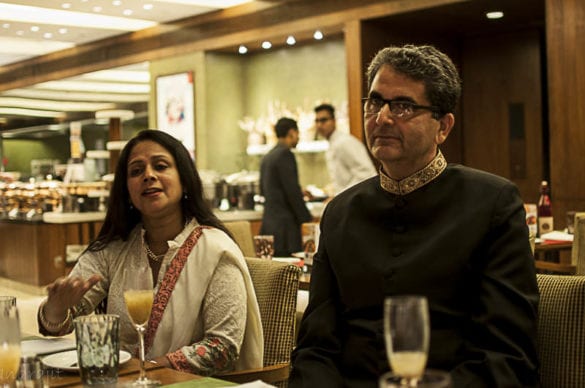
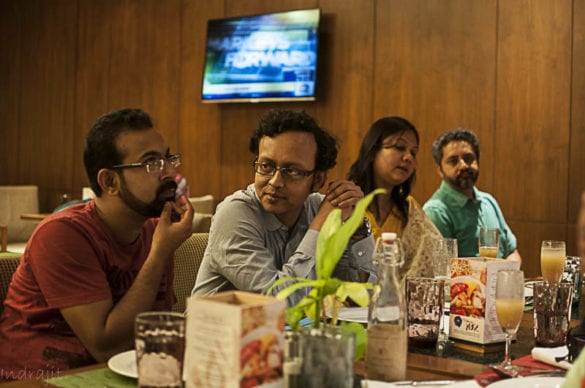
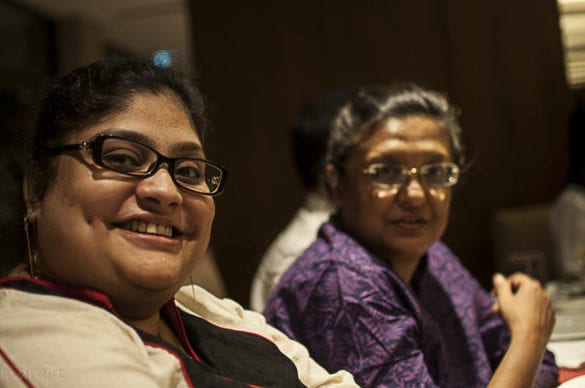
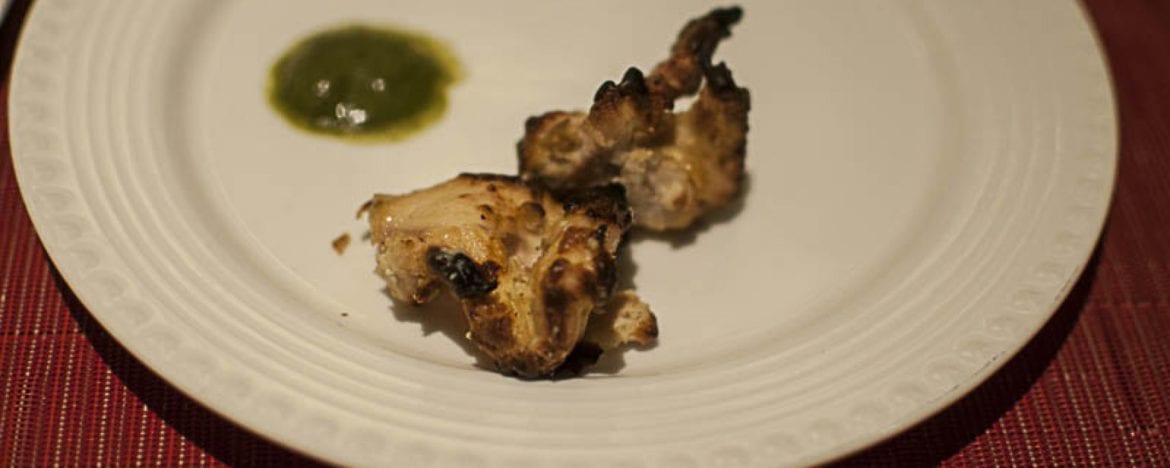




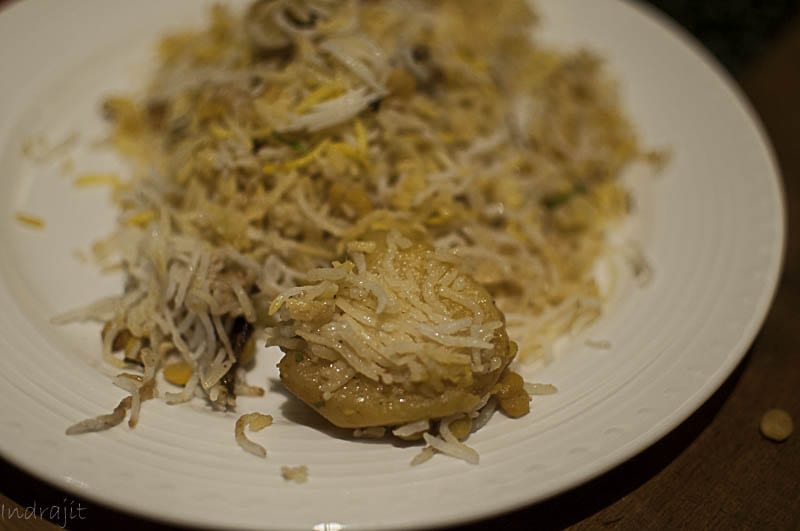
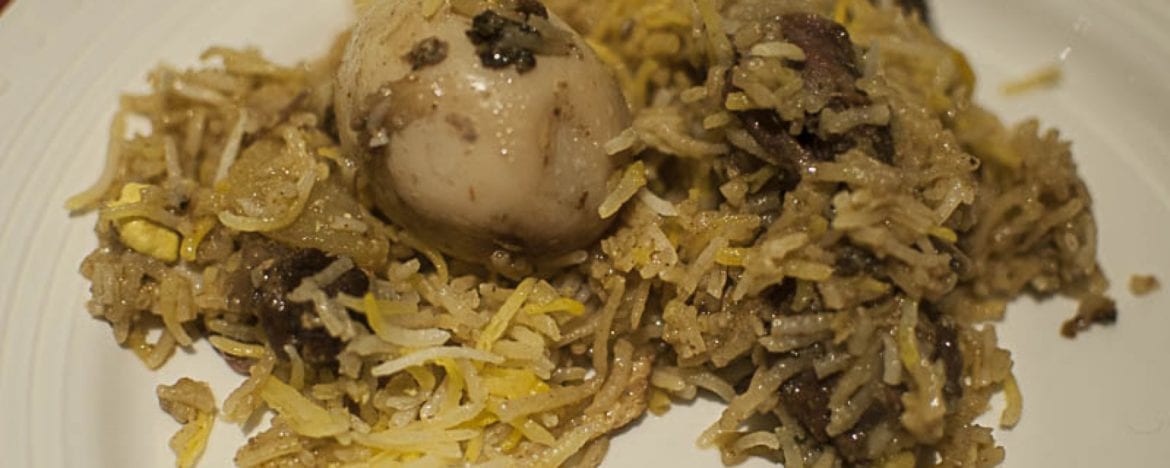

1 comment
Reblogged this on moumitarmonerkotha.